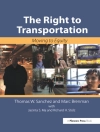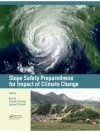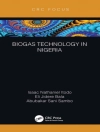This book outlines the status quo of worldwide wildlife tourism and its impacts on planning, management, knowledge, awareness, behaviour and attitudes related to wildlife encounters. It sets out to fill the considerable gaps in our knowledge on wildlife tourism, applied ecology, and environmental education, providing comprehensive information on and an interdisciplinary approach to effective management in wildlife tourism.
Examining the intricacies, challenges, and lessons learned in a meaningful and rewarding tourism niche, this interdisciplinary book comprehensively examines the major potentials and controversies in the wildlife tourism industry. Pursuing an insightful, provocative and hands-on approach, it primarily addresses two questions: ‘Can we reconcile the needs of the wildlife tourism industry, biodiversity conservation, ecological learning and animal ethics issues?’ and ‘What is the Future of the Wildlife Tourism Industry?’.
Though primaril
y intended as a research text, it also offers a valuable resource for a broad readership, which includes university and training students, researchers, scholars, tourism practitioners and professionals, planners and managers, as well as the staff of government agencies.Tabela de Conteúdo
Wildlife tourism management and phenomena: a web of complex conceptual, theoretical and practical issues.- A political ecology of the yellow-eyed penguin in Southern New Zealand: a conceptual and theoretical approach.- The intersections between lacustrine wildlife, tourism and conservation: scientific and educational opportunities in the Brazilian southern lakes.- Wildlife Tourism for Visitors’ Learning Experiences: Some Evidences on the Royal Bengal Tiger in Bangladesh and in India.- Whale and dolphin watching, and visitors’ experiential responses: a qualitative study on comments in a travel forum.- Will the Ark sink? Captive Wildlife, Tourism and the Human Relationship to Nature: Demystifying Zoos.- Wildlife tourism, a multidisciplinary field of inquiries and insights: final considerations.
Sobre o autor
Ismar Borges de Lima is currently an associate professor at the State University of Roraima (UERR), Brazil, and an Adjunct Lecturer at Southern Cross University (SCU), Australia, where he also did his postdoc studies in 2015 at the School of Business and Tourism with research on wildlife tourism and environmental interpretation in parks. He is a Ph.D. holder in the field of Geography & Tourism, a degree awarded in 2008 by the University of Waikato, in New Zealand.
Ronda holds a Ph D in zoology and has conducted much ecological and behavioural research over the years, especially seed dispersal by fruit-eating animals and the effects of habitat alteration on wildlife, also play behaviour of chimpanzees and various aspects of wildlife tourism. She has had extensive experience in nature interpretation for all ages, having run a holiday farm, worked as ranger in charge of interpretive activities, lectured at university and adult education classes, among others. S
he is currently chair of Wildlife Tourism Australia and Scenic Rim Wildlife.












